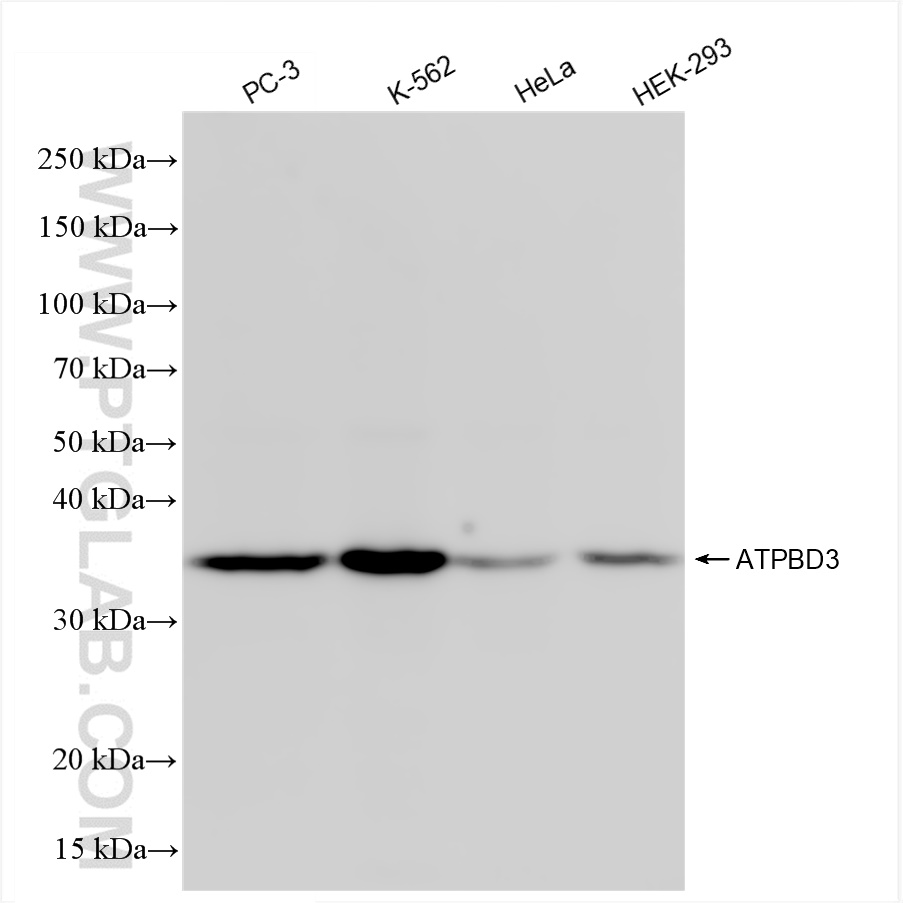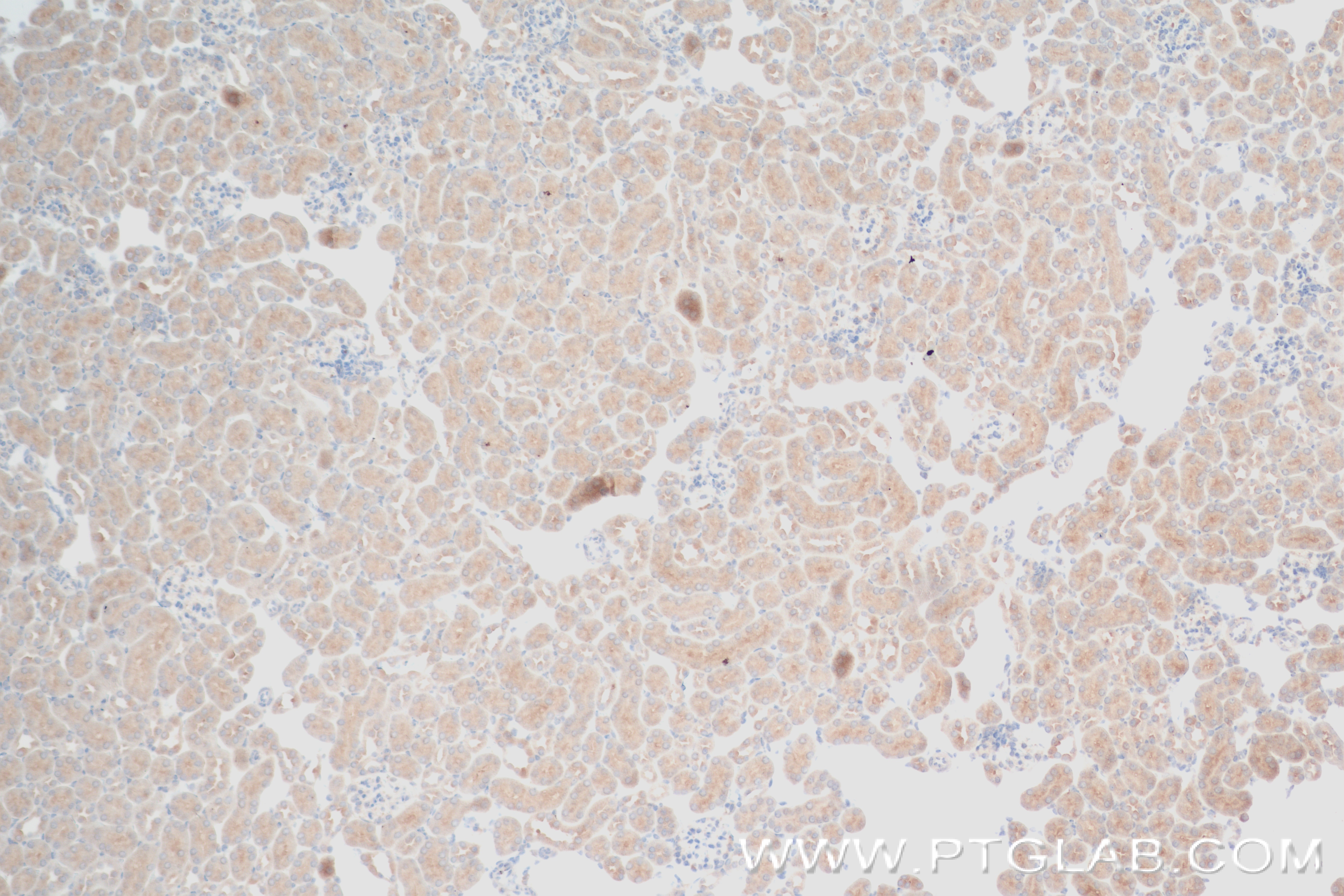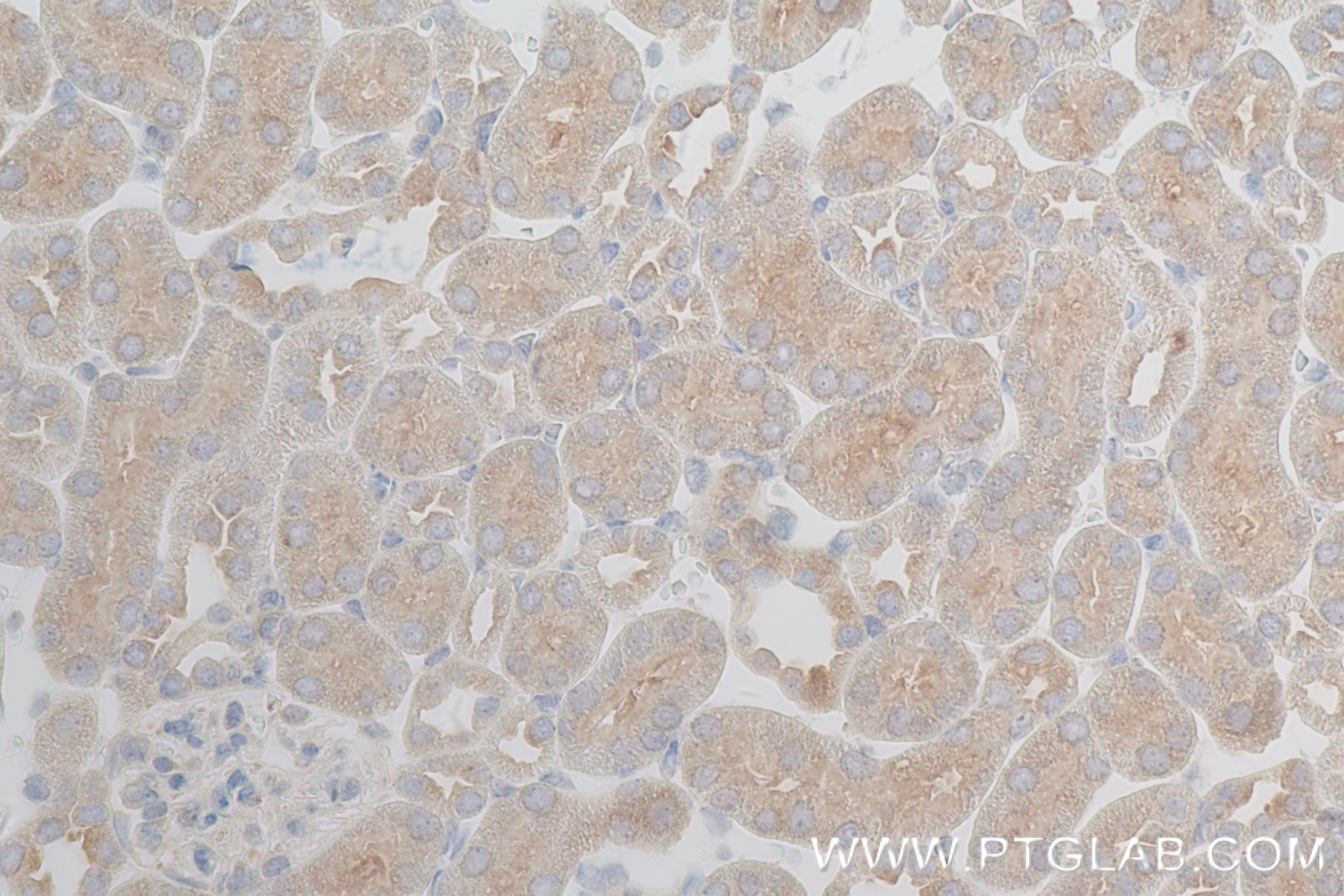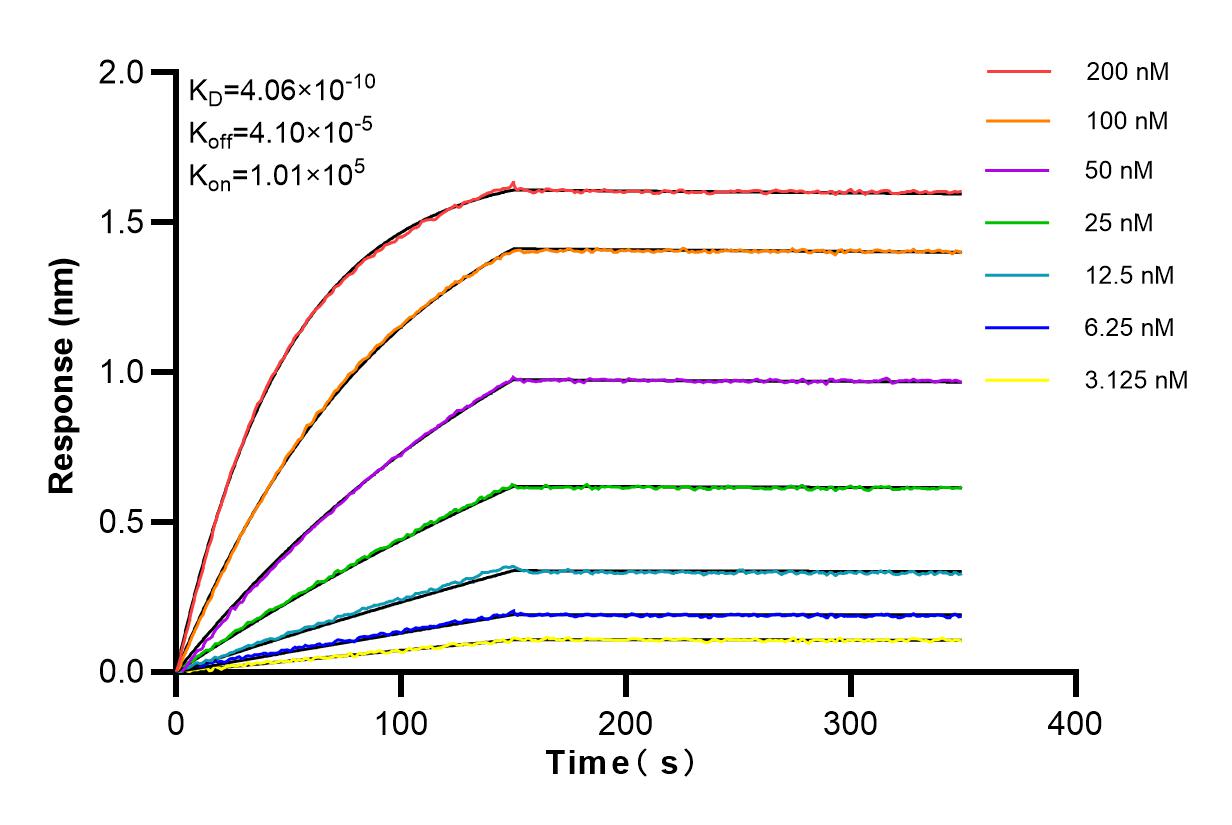验证数据展示
经过测试的应用
| Positive WB detected in | PC-3 cells, K-562 cells, HeLa cells, HEK-293 cells |
| Positive IHC detected in | mouse kidney tissue Note: suggested antigen retrieval with TE buffer pH 9.0; (*) Alternatively, antigen retrieval may be performed with citrate buffer pH 6.0 |
| Positive IF-P detected in | mouse kidney tissue |
推荐稀释比
| 应用 | 推荐稀释比 |
|---|---|
| Western Blot (WB) | WB : 1:2000-1:10000 |
| Immunohistochemistry (IHC) | IHC : 1:50-1:500 |
| Immunofluorescence (IF)-P | IF-P : 1:200-1:800 |
| It is recommended that this reagent should be titrated in each testing system to obtain optimal results. | |
| Sample-dependent, Check data in validation data gallery. | |
产品信息
84318-4-RR targets ATPBD3 in WB, IHC, IF-P, ELISA applications and shows reactivity with human samples.
| 经测试应用 | WB, IHC, IF-P, ELISA Application Description |
| 经测试反应性 | human |
| 免疫原 | ATPBD3 fusion protein Ag35037 种属同源性预测 |
| 宿主/亚型 | Rabbit / IgG |
| 抗体类别 | Recombinant |
| 产品类型 | Antibody |
| 全称 | ATP binding domain 3 |
| 别名 | NCS6, CTU1, 241630C4 |
| 计算分子量 | 36 kDa |
| 观测分子量 | 35 kDa |
| GenBank蛋白编号 | NM_145232 |
| 基因名称 | ATPBD3 |
| Gene ID (NCBI) | 90353 |
| RRID | AB_3671859 |
| 偶联类型 | Unconjugated |
| 形式 | Liquid |
| 纯化方式 | Protein A purfication |
| UNIPROT ID | Q7Z7A3 |
| 储存缓冲液 | PBS with 0.02% sodium azide and 50% glycerol , pH 7.3 |
| 储存条件 | Store at -20°C. Stable for one year after shipment. Aliquoting is unnecessary for -20oC storage. |
背景介绍
ATPBD3, also known as CTU1, NCS6, is a subunit of a highly conserved protein complex involved in the thiolation of wobble U34(PMID: 18391219). ATPBD3 directly binds tRNAs and probably acts by catalyzing the adenylation of tRNAs, an intermediate required for 2-thiolation.
实验方案
| Product Specific Protocols | |
|---|---|
| WB protocol for ATPBD3 antibody 84318-4-RR | Download protocol |
| IHC protocol for ATPBD3 antibody 84318-4-RR | Download protocol |
| IF protocol for ATPBD3 antibody 84318-4-RR | Download protocol |
| Standard Protocols | |
|---|---|
| Click here to view our Standard Protocols |




